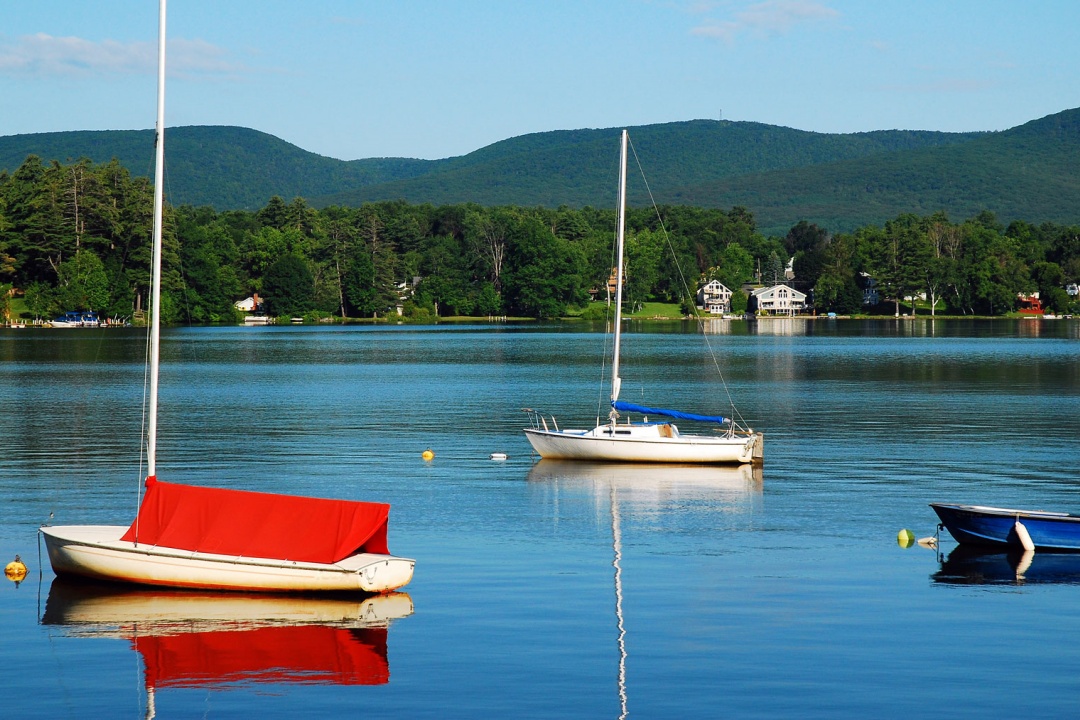Exploring The Berkshires as an Ideal Retirement Destination

When considering where to retire, it is important to consider various factors that can impact your quality of life. Factors to consider include the overall cost of living, available amenities and activities, climate, access to healthcare, and the general atmosphere of the location. The Berkshires, located in Massachusetts, is gaining popularity as a retirement destination, offering a unique mix of natural beauty, cultural attractions, and a welcoming community.
Considerations When Deciding Where To Retire
Choosing the right location involves balancing personal preferences, financial considerations, and practical aspects of daily living. You may want to consider major factors such as cost of living, healthcare availability, community and social activities, natural landscape, and other elements.
What Living in the Berkshires Has to Offer
Retiring in the Berkshires of Massachusetts presents a unique blend of cultural richness, natural beauty, and a tranquil lifestyle that appeals to many retirees seeking a serene yet engaging place to enjoy their golden years.
This picturesque region, known for its rolling hills, scenic landscapes, and charming New England towns, offers a wide array of benefits for those looking to settle down in a place that combines the best of nature, art, and community.
Here’s what living in the Berkshires has to offer:
1. Cost of Living
Assess the overall cost of living in potential retirement locations, including expenses such as housing, food, healthcare, and local taxes. Some areas may offer a lower cost of living, which can stretch your retirement savings further.
The cost of living in the Berkshires is a significant benefit for retirees. Compared to other retirement destinations, the region offers a relatively affordable cost of living, making it easier for retirees to maintain a comfortable lifestyle within their retirement budgets.
According to a study by Niche, the cost of living in the Berkshires received a grade of B-. This means that expenses such as housing, transportation, groceries, and healthcare are generally more affordable then in many other areas.
Housing options in the area range from quaint small-town homes to larger properties with scenic views, catering to various preferences and budgets. Additionally, transportation costs are reasonable, and the availability of local markets and farmers’ markets make groceries more affordable. The region also has access to quality healthcare facilities, ensuring that retirees have necessary medical services without exorbitant costs.
Overall, the Berkshires’ relatively affordable cost of living allows retirees to enjoy their retirement years without financial strain.
2. Healthcare Access
Quality healthcare is a top priority for retirees. Ensure that your chosen location has adequate healthcare facilities and services that can meet your needs now and in the future.
Access to quality healthcare is a critical consideration for retirees, and the Berkshires deliver in this aspect as well. The region is served by several highly regarded hospitals and healthcare facilities, ensuring that residents have access to excellent medical care when needed.
3. Climate and Natural Environment
The local climate can significantly influence your lifestyle and activities in retirement. Whether you prefer warm, sunny weather, a cooler climate, or seasonal changes, choose a place that aligns with your comfort and hobbies.
The Berkshires are renowned for their stunning natural scenery, offering an abundance of outdoor activities year-round. From the lush greenery of summer to the vibrant foliage of fall, and the snowy landscapes of winter, the region is a haven for nature lovers. Retirees can enjoy hiking, biking, and walking in the numerous state parks and trails, such as the Appalachian Trail and Mount Greylock, the highest point in Massachusetts. Winter brings opportunities for skiing, snowshoeing, and cozying up in one of the region’s picturesque towns.
Retirees looking for a slower pace of life will find it in the Berkshires. The region’s small towns and rural landscapes provide a peaceful and relaxed lifestyle, away from the hustle and bustle of city life. The sense of community is strong, with friendly neighbors and local markets offering a personal touch that’s hard to find elsewhere.
4. Social and Cultural Activities
Retirement is an opportunity to explore interests and hobbies. Look for locations with a vibrant cultural scene, community activities, and educational opportunities that match your interests.
The Berkshires are a cultural hub, with a surprising array of arts and entertainment options that rival much larger cities. The area is home to Tanglewood, the summer home of the Boston Symphony Orchestra, offering an unparalleled musical experience. Additionally, there are numerous art galleries, museums like the Norman Rockwell Museum and MASS MoCA (Massachusetts Museum of Contemporary Art), and historic theaters that host a variety of performances and events throughout the year.
5. Community and Social Engagement
A supportive and friendly community can enhance your retirement experience. Consider whether the area fosters a sense of belonging and offers opportunities for social connection and engagement.
Despite its rural charm, the Berkshires boast a vibrant community with plenty of opportunities for social engagement. There are numerous clubs, groups, and organizations tailored to a wide range of interests, including art, history, gardening, and environmental conservation. This active community spirit makes it easy for retirees to make new friends and stay engaged with their interests.
6. Transportation and Accessibility
Ease of transportation is crucial for maintaining independence and accessing services, especially as you age. Check for reliable public transportation, convenient travel routes, and accessibility features in the community.
While the most convenient way to commute around in the Berkshires is by car, the Berkshire Regional Transit Authority offers buses to nearby 12 cities and towns. Certain towns offer ride-sharing options such as Uber and Lyft.
7. Safety and Security
Safety is an important consideration, so research the safety records and crime rates of potential retirement areas. A safe and secure environment contributes to peace of mind in retirement.
The Berkshires experience less crime compared to the national average, however it’s important to do your research on the specific neighborhood you are considering moving to.
8. Recreational Opportunities
If you enjoy outdoor activities, cultural events, or other hobbies, ensure your retirement location offers plenty of opportunities to pursue these interests. Access to parks, recreational facilities, and cultural venues can enrich your retirement years.
The Berkshires offer a distinct experience with each season, providing a dynamic backdrop to retirement life. Spring and summer are perfect for gardening, farmers’ markets, and outdoor concerts, while fall offers spectacular foliage tours and harvest festivals. Winter’s snow-covered scenery is ideal for those who enjoy the quiet beauty of the season or want to engage in winter sports.
9. Tax Implications
Understand the tax implications of living in a particular area, including state income tax, property tax, and taxes on retirement income. Some states are more tax-friendly for retirees than others.
While Massachusetts is not the lowest-tax state, the Berkshires offer a cost of living that can be quite reasonable compared to urban areas. Prospective retirees should consider their overall budget and financial planning, including property taxes, state income tax, and estate tax implications.
10. Planning for the Future
Consider how your needs may change over time and whether a potential retirement location can accommodate those changes. Access to long-term care, senior-friendly housing, and other support services should be part of your decision-making process. Each individual’s priorities and preferences will differ, making it important to weigh these factors according to your personal situation and lifestyle goals.
Most Common Questions About the Berkshires
1. Where are the Berkshires located?
Where are the Berkshires? The Berkshires are located in the western part of Massachusetts and the northwestern part of Connecticut.
2. What is the quality of life in the Berkshires?
The quality of life in the Berkshires is exceptional, with its beautiful natural surroundings, vibrant arts and culture scene, and a strong sense of community. Residents enjoy a peaceful and relaxed pace of life, with access to a wide range of recreational and cultural activities.
3. Are the Berkshires a nice place to live?
Yes, the Berkshires is widely regarded as an excellent place to live. Its scenic beauty, cultural offerings, and strong community spirit make it an appealing choice for retirees seeking a high quality of life. The region offers a supportive and welcoming environment, fostering a sense of belonging and connection.
4. Are the Berkshires nice in the winter?
Yes, the Berkshires is known as a picturesque winter wonderland. The region offers opportunities for winter sports, such as skiing and snowboarding, and the towns adorn themselves with festive decorations during the holiday season. The peacefulness and beauty of the snow-covered landscapes create a unique and enjoyable winter experience. Though winters are known to be scenic in the Berkshires, the region also experiences warmer temperatures nearing the eighties in the spring and fall.
5. Are the Berkshires a good place to Retire?
Is Massachusetts a good place to retire? Indeed, the Berkshires have become increasingly popular as a retirement destination. With its stunning natural beauty, vibrant arts and culture scene, and affordable cost of living, the region offers retirees a fulfilling and enriching lifestyle. The supportive, friendly, and tight-knit community fosters a sense of belonging and inclusion, making it an ideal place for retirees seeking a peaceful and engaging retirement.
Do The Berkshires sound like a good fit for your retirement? Download our Financial Checklist for moving to The Berkshires to help you start planning your move! Or schedule a free call with an advisor to learn more about how we can help.
Peter works with people from all walks of life who have either retired or are about to retire to protect and grow their wealth. He serves as a guide to help them make some of life’s most significant decisions including, “When can I retire?” or, “How can I protect my family if something happens to me?” As a Certified Senior Advisor®, he helps older adults prepare for and navigate the changing needs of their later years. Many of his clients own a business or are doctors, nurses, lawyers, CPAs, or engineers.







